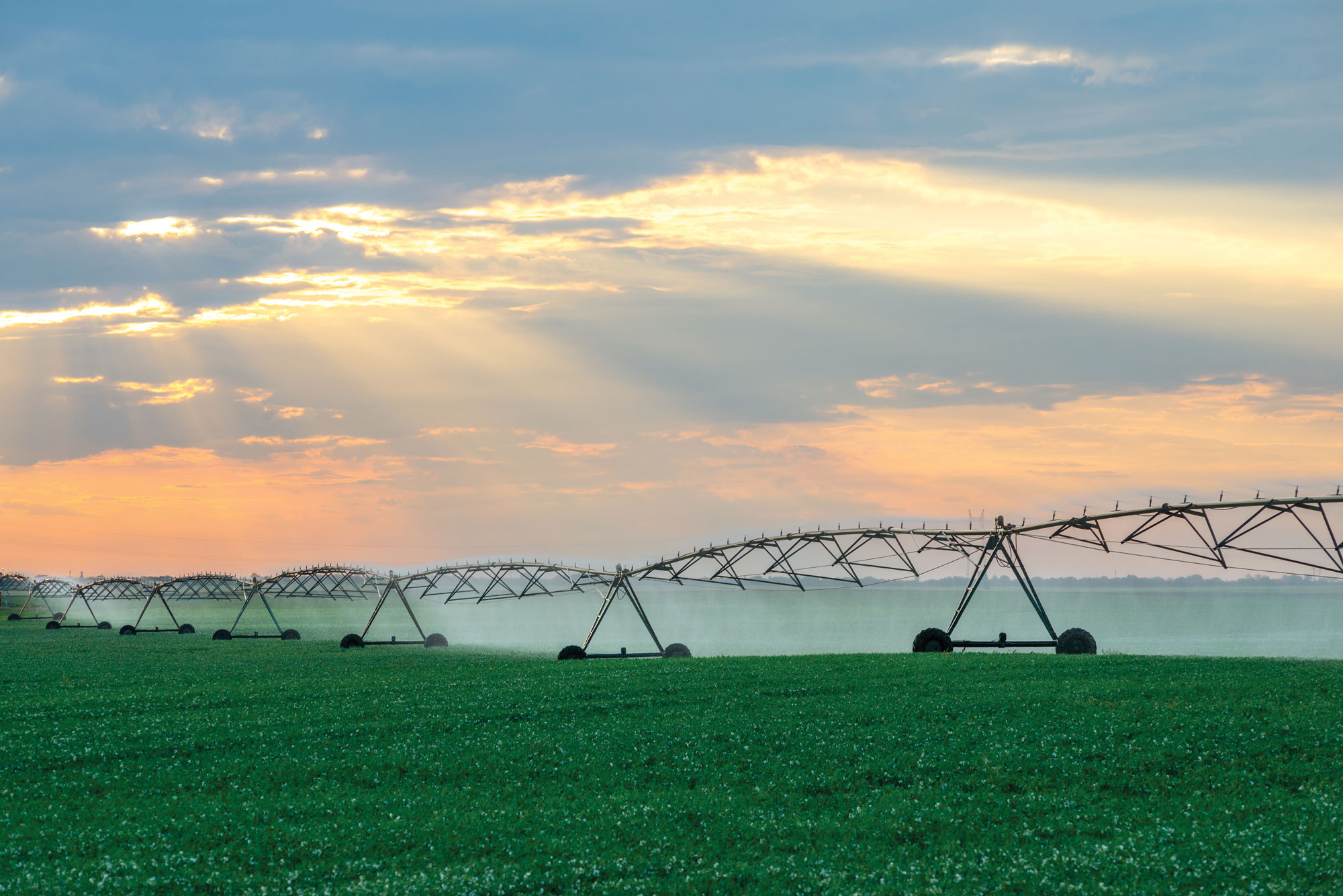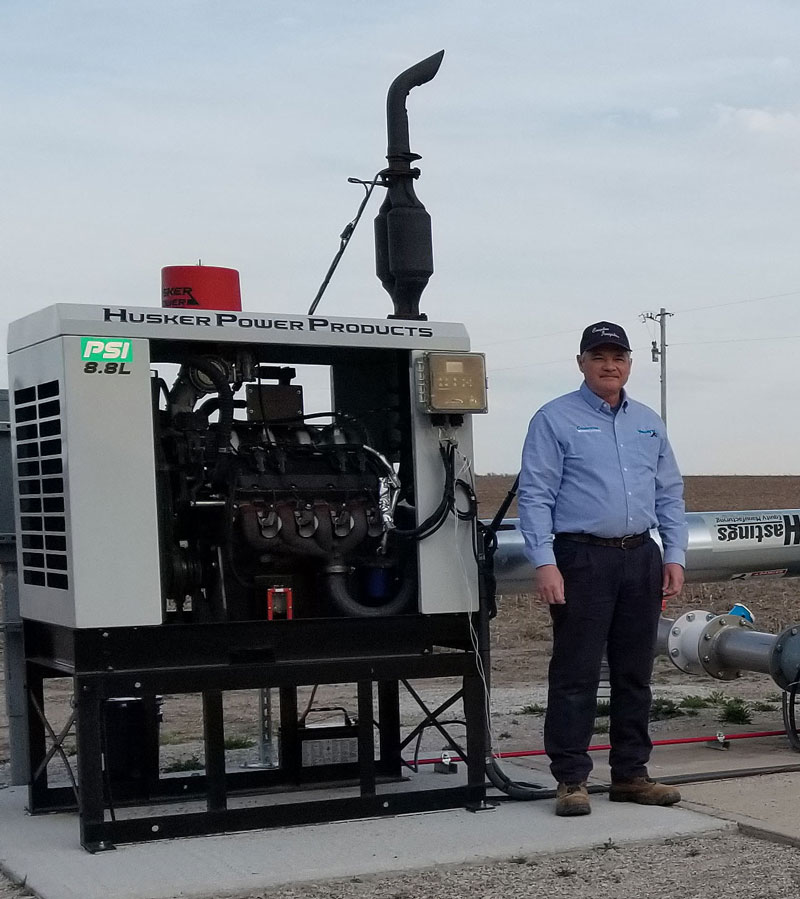
Irrigators Tout the Perks of Propane
April 12, 2019
Written By Adam Buckallew

Farmers are looking for any advantage they can find to improve their balance sheets as the agricultural economy remains mired in a five-year rut. In the quest to control costs and maximize efficiency, irrigators are increasingly turning to propane to power their pumps.
Robert Compton, an MFA Oil member and owner of Compton Irrigation in Lamar, Mo., says his propane-driven engines have cut operating costs significantly on his farm.
“My operating costs with propane are roughly half of what they would be with diesel,” Compton says. “It’s easy to justify buying a new propane engine because the savings allow it to pay for itself.”
Data from the Propane Education and Research Council (PERC) shows Compton’s experience is typical. In a 2013 survey of farmers who installed propane-powered irrigation engines, 56 percent reported they were able to cut their fuel costs compared with similar diesel-powered engines. Farmers who participated in the study also reduced their overall fuel consumption by 37 percent per hour.
Bill Heese, a sales account manager with Husker Power Products, has worked closely with a number of farmers, including Compton, who have made the switch from diesel to propane power units. He says as energy costs and expectations have changed over the years, so too has the caliber of today’s propane engines.
“The newer propane engines are much less expensive than diesel units, but are also more robust, very durable, and have better long-term value,” Heese says. “Considering an irrigation system is a 30- to 40-year investment, converting to propane will likely generate even more value down the road.”
Upfront Savings
The Environmental Protection Agency’s Tier 4 diesel emission standards have gone a long way in reducing the volume of pollutants entering the atmosphere; yet they have also driven engine prices dramatically higher.
MFA Oil member Dustin Faulkner, who farms in northeastern Arkansas, says the difference in upfront costs between diesel and propane irrigation engines was a primary factor in his choice to switch fuel sources.
“The cost of a diesel-powered unit can be twice as much as a propane unit,” says Faulkner. “When you are comparing $20,000 and up for a diesel unit to $10,000 for a comparable propane unit, it makes for an easy decision.”
PERC offers a Propane Farm Incentive Program that helps farmers offset the cost of buying the latest propane-powered equipment. The program offers up to $5,000 in financial assistance for qualified purchases in exchange for farmers providing basic fuel consumption data. And the incentive isn’t limited to irrigators. Propane-powered heating systems for poultry, swine, and greenhouses and grain drying are eligible for reimbursement under the program. A full list of qualifying equipment and uses, as well as program guidelines, are available at Propane.com/FarmIncentive.
More Reasons to Consider Switching
Jeff Goodwin, MFA Oil district manager for the Mid-South and Ohio Valley, says there are a variety of benefits propane-powered irrigation pumps offer beyond their lower price tag and cost effectiveness.
“Propane is a clean-burning fuel that reduces deposits on engines and prevents premature wear,” Goodwin says. “That means less maintenance and more reliability.”
The propane-powered pumps not only burn cleaner—emitting 11 percent fewer greenhouse gases than diesel engines—farmers say they run more efficiently, too. Past participants in PERC’s Propane Farm Incentive Program have reported that new propane irrigation engines deliver up to 28 percent higher performance than their previous diesel engines.
Another advantage propane has over diesel fuel is its stable storage properties.
“Propane can be stored for long periods of time without worry or need for tank maintenance,” Goodwin says.
The fact that propane engines operate on a closed fuel system is another perk in the fuel’s favor.
“There’s much less risk of spills and theft with the closed system,” Goodwin says. “And even in the rare chance there is a spill, propane will evaporate in a matter of minutes without contaminating your soil or groundwater.”
Ron Cavanaugh, another MFA Oil member from the Mid-South, says the cost savings and clean-burning benefits offered by propane make it a good bet to pay off for irrigators.
“With all the advantages, especially the money you can save in comparison to diesel-powered irrigation units, the future looks very bright for propane in the farming community.”

